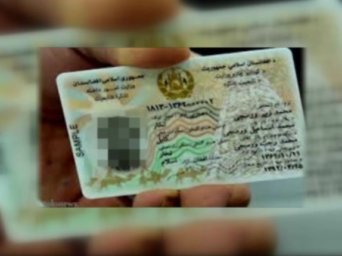- About
- Topics
- Picks
- Audio
- Story
- In-Depth
- Opinion
- News
- Donate
- Signup for our newsletterOur Editors' Best Picks.Send
Read, Debate: Engage.
| located: | Afghanistan |
|---|---|
| editor: | Shadi Khan Saif |
Preying on the sentiments of pride and fear stemming from the country’s bloody past, an array of war-lords-turned-politicians in Afghanistan have undermined the country’s digital future by politicising the proposed new biometric identity cards.
The path to digitalise the country’s outdated system of governance that is still fumbling upon piles of paper documents has already been thorny. The recent politicising of the identity cards has not only made it worst, but in fact further fuelled the differences in the country with a diverse mix of cultures, histories and political ideologies that have penetrated it.
To the surprise of many foreigners, the bone of contention hindering the roll-out of the new identity cards with many security features and biometric logging, is simply the word ‘Afghan’. The main power-sharing party in the government, the Jamiat-e-Islami, eyeing to tap into its ethnic vote bank for the forthcoming elections, is the main opposition to the use of the term of Afghan on the proposed card. Threatening of grim consequences, it is arguing that marking the term Afghan on the card amounts to suppression of other ethnic groups in the country except the majority Pashtunes, hence also targeting the President Mohammad Ashraf Ghani.
This argument stems from the ancient past, prior to the modern-day Afghanistan when the term of Afghan was mainly associated with the Pashtun people living in this part of the world. However, it no longer has been the case, with the world and the inhabitants of the country being known globally as Afghans. Institutions have developed based on this identity such as the Afghan National Police, Afghan National Army and so on.
The irony, and absurdity on the part of those opposing the term Afghan does not end here. In their terminology, the inhabitants of Tajikistan are Tajikistanis while those with Tajik ancestry in Afghanistan are Tajiks… same is applied to the rest of Central Asians, much to the surprise of the country’s many immediate neighbours. Even in Iran, where Persian speakers initially coined the term Afghan, everyone living in Afghanistan are referred to as Afghans without the distinction for their petty politics developed by some in the war-stricken country.
It goes without saying that this inevitably blocks the path for transparent elections, and statistics-based policies for social, economic and political justice that would eventually help address the grievances among a population exploited for too long by its politicians.
